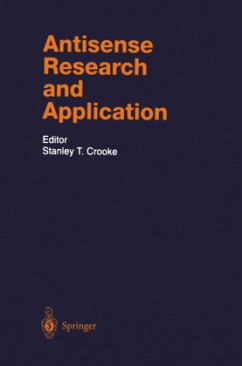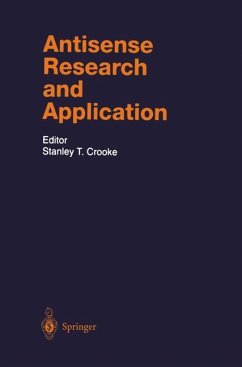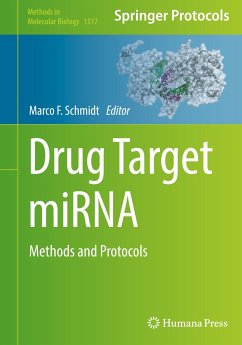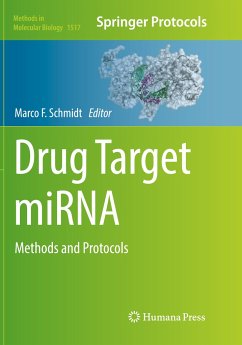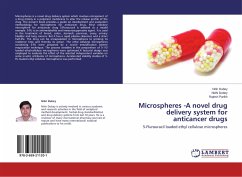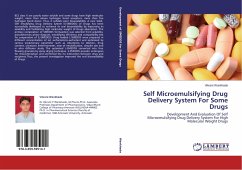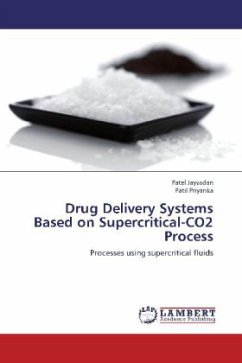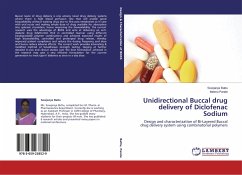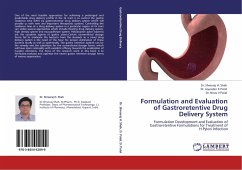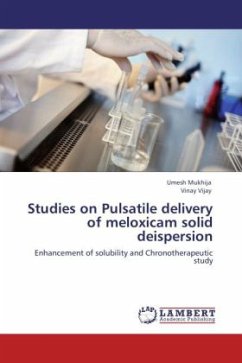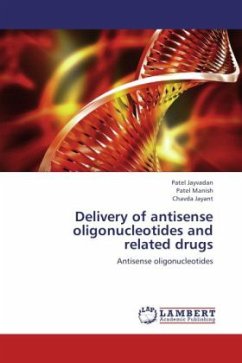
Delivery of antisense oligonucleotides and related drugs
Antisense oligonucleotides
Versandkostenfrei!
Versandfertig in 6-10 Tagen
32,99 €
inkl. MwSt.

PAYBACK Punkte
16 °P sammeln!
Over the past 2 decades, the antisense oligonucleotide technology has emerged as a valid approach to selectively modulate gene expression. By adhering to a strict set of specific rules, ongoing in vitro studies using antisense oligonucleotides permit the characterization of new targets and new potential therapeutic compounds. The number of in vitro experiments has increased continuously, and this has led to numerous therapeutic trials, a few of which now appear preliminarily to be positive. However, the optimal use of antisense oligonucleotides in the treatment of disease requires the resoluti...
Over the past 2 decades, the antisense oligonucleotide technology has emerged as a valid approach to selectively modulate gene expression. By adhering to a strict set of specific rules, ongoing in vitro studies using antisense oligonucleotides permit the characterization of new targets and new potential therapeutic compounds. The number of in vitro experiments has increased continuously, and this has led to numerous therapeutic trials, a few of which now appear preliminarily to be positive. However, the optimal use of antisense oligonucleotides in the treatment of disease requires the resolution of problems relating to effective design, enhanced biological activity, and efficient target delivery. These issues are currently being actively addressed and will hopefully continue to shed light on ways to increase therapeutic efficacy and specificity.



